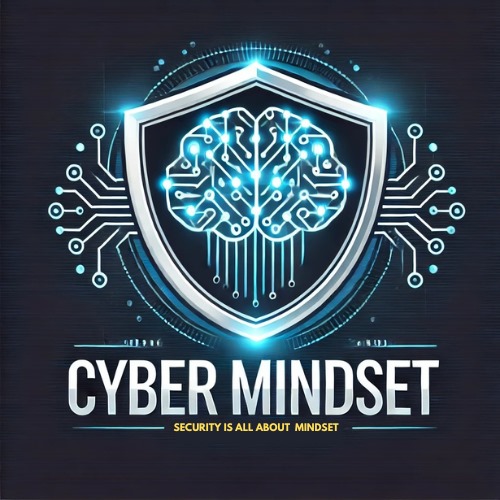Each time a person swipes a debit or credit card, they’re placing trust in the company to secure their payment and personal data. That may not sound like a huge issue on the surface, but behind the scenes, there’s a lot that needs to happen to protect that data from hackers and fraud. That’s where PCI DSS comes in!
PCI DSS stands for Payment Card Industry Data Security Standard. It’s a set of guidelines and best practices that ensure businesses process card payments in a safe and secure manner.
What Is PCI DSS?
Let’s start with the basics: PCI DSS stands for Payment Card Industry Data Security Standard. It’s a global set of rules that helps businesses handle card transactions safely and securely.
So, what is PCI DSS really all about? In short, it’s about protecting cardholder data and reducing the risk of fraud or cyberattacks. If you’re accepting, processing, storing, or transmitting card information, PCI DSS applies to you.
Who Developed PCI DSS?
PCI DSS was jointly developed by five of the world’s biggest credit card companies: Visa, Mastercard, American Express, Discover, and JCB. These companies came together in 2004 to create one standard that all businesses could follow, no matter where they are.
They also established the Payment Card Industry Security Standards Council (PCI SSC), which oversees and updates the guidelines to keep up with evolving threats.
Why PCI DSS Compliance Matters
Consider PCI DSS a safety checklist. It gives you a clear plan to follow so you can avoid problems like data breaches or fraud.
In case your company is targeted by a cyberattack and you are not compliant, you may encounter:
- Large fines from payment businesses
- Costly lawsuits
- Lost customers and sales
- A ruined reputation
- Increased processing fees
- And even a complete ban on accepting card payments
That’s a lot to risk when PCI DSS compliance can help you prevent it.
PCI DSS Compliance Levels
PCI compliance is categorized into four levels, depending on the number of credit or debit card transactions a company processes annually. The classification level defines what an enterprise must do to stay compliant.
Level 1: For merchants who accept over six million actual-world credit or debit card transactions per year. Under the control of a qualified PCI auditor, they are required to have an annual internal audit. Additionally, quarterly, they have to undergo a PCI scan by an Approved Scanning Vendor (ASV).
Level 2: This applies to merchants who process between one and six million real-world credit or debit card transactions per year. They need to do an assessment once a year through a Self-Assessment Questionnaire (SAQ). A quarterly PCI scan may also be necessary.
Level 3: This applies to merchants that process between 20,000 and one million e-commerce transactions per year. They need to fill out an annual evaluation with the applicable SAQ. They may also be required to perform a quarterly PCI scan.
Level 4: This is for merchants processing fewer than 20,000 e-commerce transactions annually or those that process up to one million real-world transactions. A yearly assessment using the relevant SAQ must be completed, and a quarterly PCI scan may be required.
What Are the PCI DSS Requirements?
To be compliant, you’ll need to follow 12 core PCI DSS requirements:
- To safeguard cardholder data environments, install and maintain a firewall.
- Avoid using default passwords and other security settings provided by vendors.
- Encrypt stored cardholder data.
- Encrypt payment card data that is sent through open, public networks.
- Use and maintain up-to-date antivirus software.
- Implement and maintain secure systems and applications.
- Limit access to cardholder data to employees with a legitimate business need due to their job requirements.
- Assign a unique ID to each individual with access to data or computers.
- Limit physical access to cardholder data.
- Monitor and record all network resource and cardholder data access.
- Periodically test security processes and systems.
- Keep an information security policy.
What Is PCI DSS Certification?
PCI DSS certification indicates that a company knows and adheres to the global security standards required to safeguard card payment information. These standards, referred to as the Payment Card Industry Data Security Standards (PCI DSS), are applied by businesses globally to ensure their payment systems are secure and reliable. This certification involves learning the major concepts, policies, and step-by-step procedures required to implement these standards in real-life scenarios. It’s simply a matter of ensuring that sensitive customer information is processed securely and properly.
This certification is perfect for IT professionals, cybersecurity specialists, and anyone interested in learning how to safeguard payment data. With training, you’ll be able to develop safe systems, adhere to PCI DSS compliance standards, and implement the proper controls within your company with confidence. At CyberMindsets, we simplify the certification process and make it convenient so you can safeguard your business and gain your customers’ trust.
Advantages of Being PCI DSS Compliant
By being compliant, you’re not only staying out of trouble, you’re also preparing your business for success. Here’s what you benefit from:
- Customer trust: Your customers feel more secure doing business with you when they know their information is safe.
- Fewer security concerns: Secure systems reduce your exposure to data breaches and cyber threats.
- Fraud protection: Compliance helps detect and stop fraud before it happens.
- Peace of mind: You don’t have to worry about unexpected fines or legal trouble.
- Better reputation: Being PCI compliant shows you’re a responsible, security-conscious business.
Let CyberMindsets Help You Get Certified
Ready to turn complex security standards into something simple and actionable? At CyberMindsets, we structured our course to make it easy, straightforward, and applicable. We’ll take you through each requirement, assist you in correcting any gaps, and provide you with the means of creating a completely compliant and secure payment system.
By enrolling in our course, you won’t only learn the regulations, you’ll acquire practical skills to safeguard your customers and build a stronger business.
Get Started Today
Whether you’re new to learning about what PCI DSS is or you’re looking to start your PCI DSS compliance process, now’s the moment to make your move. Cyber threats aren’t going to stop, and neither should your security.
Let CyberMindsets help navigate the process for you, one step at a time. Secure your business, build your customers’ trust, and stay ahead of the threats with a smart, secure payment system.
Frequently Asked Questions (FAQs)
1. What is the PCI DSS full form?
PCI DSS full form is Payment Card Industry Data Security Standard, a set of rules to keep card payments secure.
2. Who needs PCI DSS certification?
Any business that stores, processes, or transmits credit or debit card information should be PCI DSS certified.
3. What will I learn in the PCI DSS certification course?
You’ll learn the key concepts, policies, and step-by-step actions needed to meet PCI DSS compliance and protect cardholder data.
4. Will I get a certificate after completing the course?
Yes, upon completion, you’ll receive a certification that shows your understanding of PCI DSS and your ability to apply it in real-world situations.
5. Do I need technical experience to take the course?
No, our course is beginner-friendly and explains everything in simple, easy-to-follow steps.



